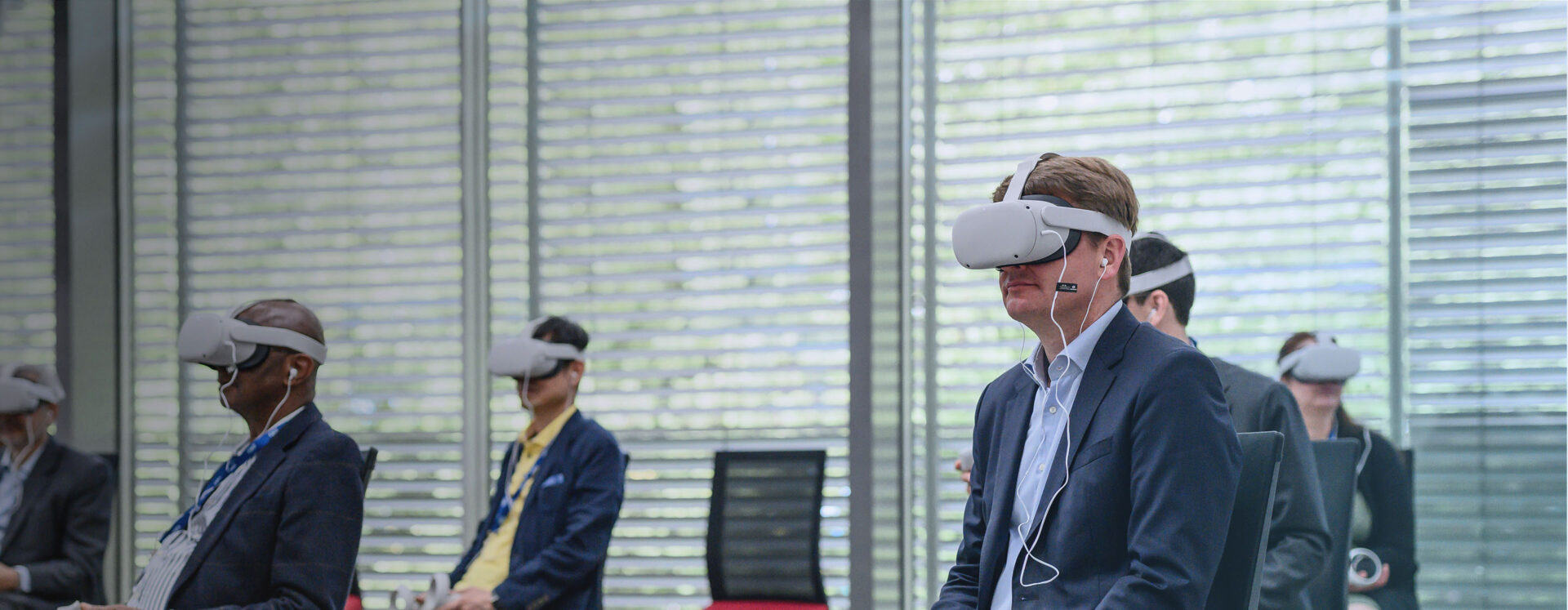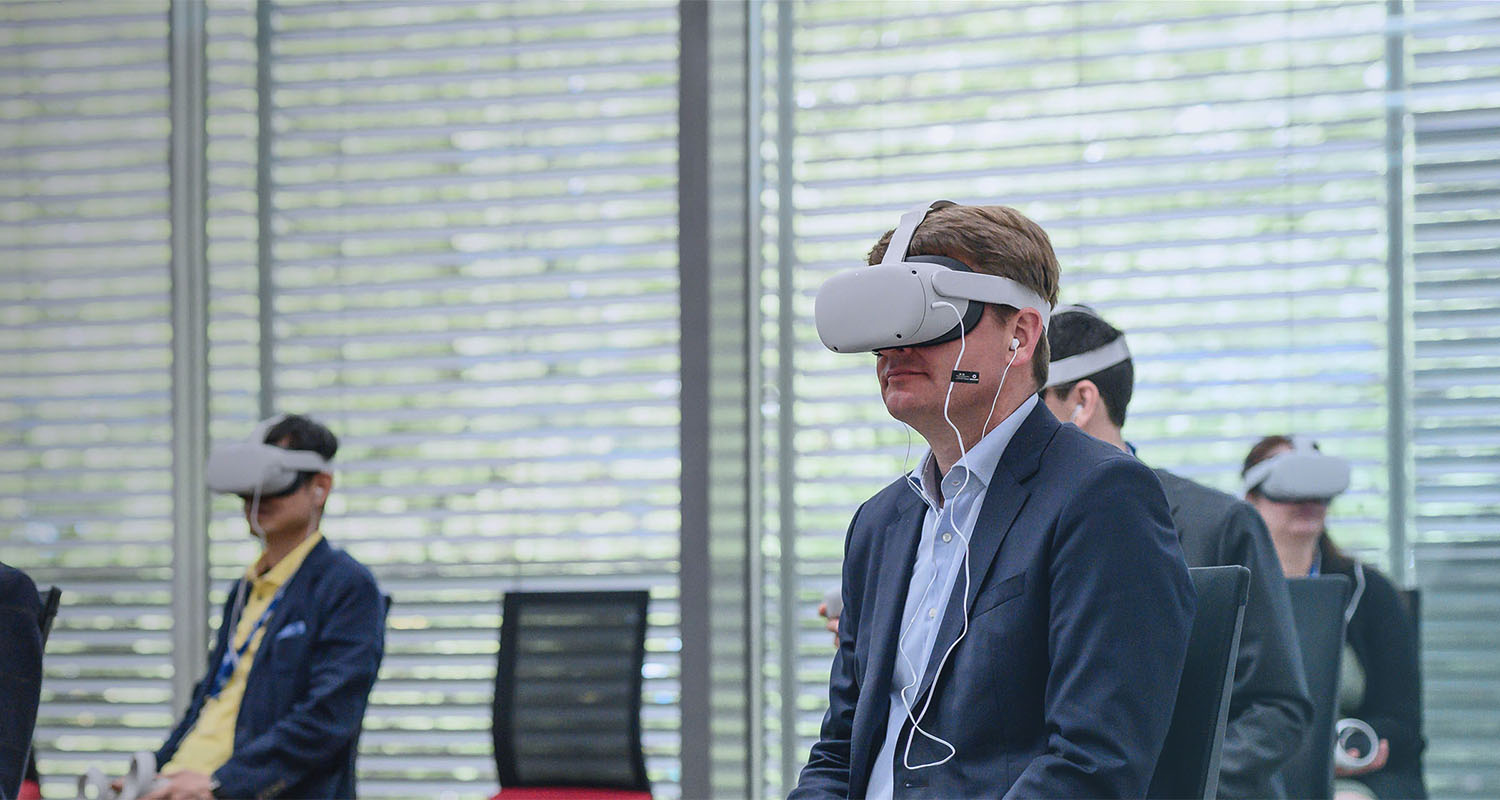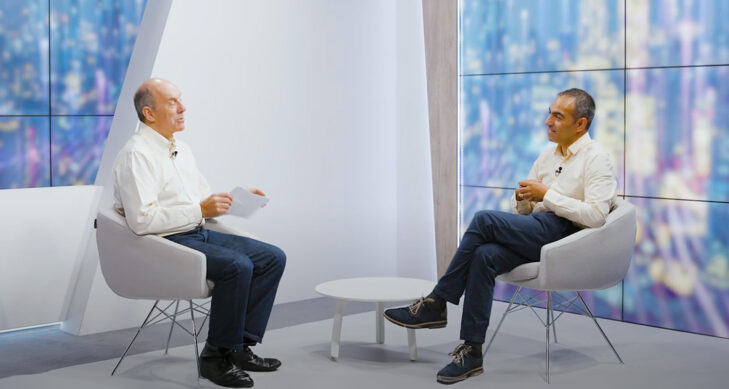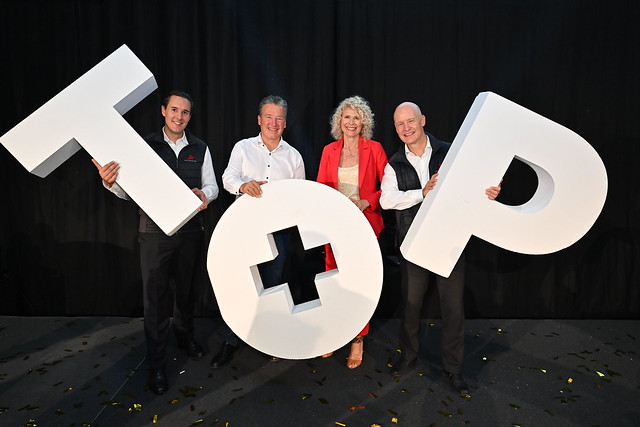


Venturing Ecosystem
The Venturing Ecosystem Initiative works with startups, scale-ups, and other high-growth, high-impact initiatives to help them lead, create a strategy, build in customer-centricity, and construct a resilient organization that delivers to its customers, employees, and shareholders. Through our research, programs and relationships, we are committed to creating thriving entrepreneurial ecosystems. The annual IMD Startup Competition supports up to 30 startups per year. The IMD/Innovaud LeadiNNg to Scaleup program helps “scaleup hopefuls” navigate this difficult step. The Venture Capital Asset Management program introduces the world of VC to investors, family offices, fund managers and entrepreneurs. IMD’s relationship with DeepTech Nation supports Switzerland’s attractiveness for technology investors.

by Jim Pulcrano, I by IMD

by Jean-François Manzoni and Mickey Mikitani, I by IMD

by Jim Pulcrano, I by IMD
In this first in our Tech for Good series, in which we showcase companies that are using technology to contribute to society, we meet Deepak Tewari (MBA 2007), founder and CEO of Privately.
IMD names 22 winners of its annual startup competition
The IMD Startup Competition gives MBA and EMBA students a valuable insight into entrepreneurship, while also helping promising young Swiss ventures to achieve success. Now in its 27th year, the IMD Startup Competition will offer 13 startups the chance to work with IMD’s full-time MBA students, while a further nine were selected to collaborate with the Executive MBA participants.

Read our latest academic publications, which are regularly published in the world’s leading business and management journals.
Discover more of our research
IMD professors and research fellows produce a number of case studies each year related to new ventures.






